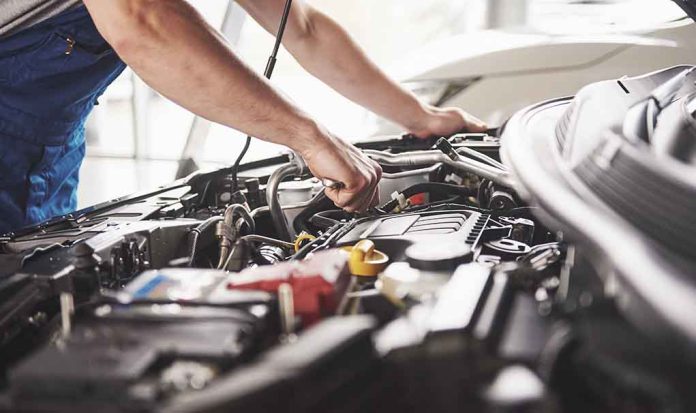
Millions of American car owners are gambling with their vehicles’ health, delaying crucial maintenance tasks as repair costs soar.
At a Glance
- 29% of American car owners are behind on oil changes
- 44% of car owners are delaying tire rotations
- Neglecting maintenance can lead to expensive repairs and safety risks
- Rising repair costs are driven by complex vehicle designs and technician shortages
- Well-maintained vehicles last longer and have higher resale value
The Alarming Trend of Delayed Car Maintenance
In an era of rising costs and economic uncertainty, American car owners are increasingly putting off essential vehicle maintenance. According to recent data from Carfax, a staggering 29% of drivers are behind on oil changes, while 44% have delayed tire rotations. This trend is not just a matter of procrastination; it’s a calculated risk that millions are taking in the face of mounting repair expenses.
The consequences of such delays can be severe. Patrick Olsen, an industry expert, warns, “When families go on a road trip or you’re going to visit your kid in college, or even if you’re just going to and from work, when you delay these types of maintenance, you’re putting your car at risk. So, oil changes, you know, your engine can seize up or burn oil more quickly.”
It's hard to overstate what a crisis the surge in car insurance and car repair is.
Over 90% of US households own a car.
Vehicle insurance is up +22.2% in the past year –>The largest jump since 1976
Vehicle repair is up +11.6% pic.twitter.com/0wO0LtYmB7
— Heather Long (@byHeatherLong) April 10, 2024
The Rising Costs of Car Repairs
The reluctance to perform routine maintenance is not without reason. Car repair costs have been increasing at an alarming rate, outpacing overall inflation. From 2013 to 2023, repair costs rose by 4.1% annually, compared to a 2.8% increase in the consumer price index. This trend has accelerated since the pandemic, with repair costs jumping by about 10% in 2022 alone.
“Customers definitely are getting sticker shock,” says David Goldsmith who owns a repair shop in Brooklyn.
Factors Driving Up Repair Costs
Several factors contribute to the rising costs of car repairs. Modern vehicles are more complex, featuring advanced systems like turbochargers and all-wheel drive. These innovations, while improving performance, also increase the potential for breakdowns and the complexity of repairs. Additionally, the use of lightweight materials like aluminum, while beneficial for fuel efficiency, makes repairs more costly due to their brittle nature and higher replacement expenses.
The Long-Term Consequences of Neglect
While delaying maintenance might seem like a short-term financial solution, it can lead to more significant expenses down the road. Paul Nadjarian from Carfax Car Care emphasizes, “Well-maintained vehicles last longer, cost owners less over time, and are worth more when it’s time to sell them.” This underscores the importance of regular maintenance not just for the vehicle’s longevity, but also for its resale value.
The average age of cars on American roads has increased to 12.5 years, reflecting both improved vehicle durability and the financial constraints preventing many from purchasing newer models. This aging fleet further highlights the critical need for consistent maintenance to ensure these older vehicles remain safe and reliable.
As repair costs continue to climb and economic pressures persist, car owners face a challenging dilemma. The temptation to delay maintenance is understandable, but the risks—both financial and safety-related—are significant.






















